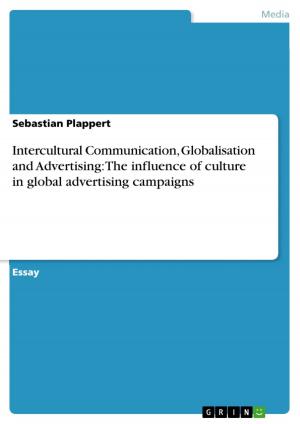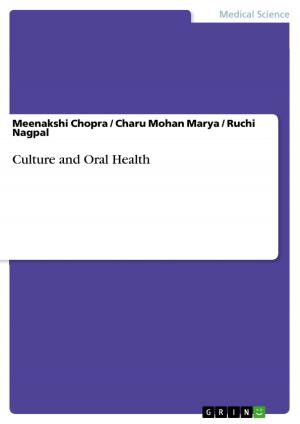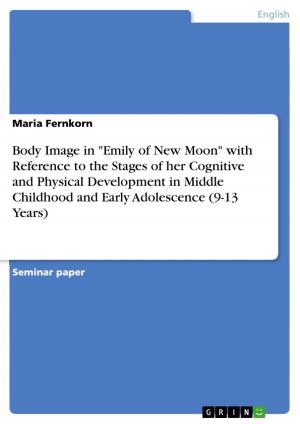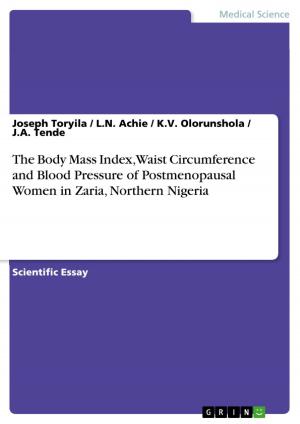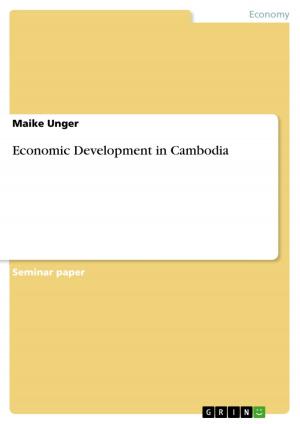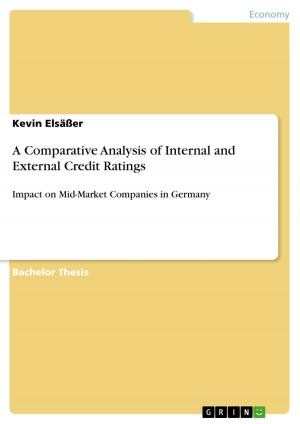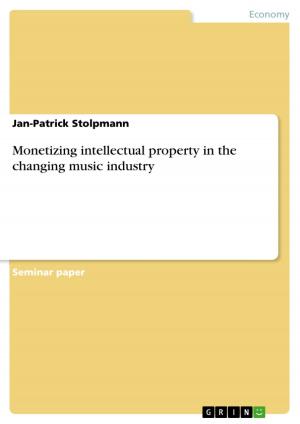Pat Barker's 'Regeneration' - a piece of historiographic metafiction?
Fiction & Literature, Literary Theory & Criticism, British| Author: | Christian Weckenmann | ISBN: | 9783640096060 |
| Publisher: | GRIN Publishing | Publication: | March 26, 2008 |
| Imprint: | GRIN Publishing | Language: | English |
| Author: | Christian Weckenmann |
| ISBN: | 9783640096060 |
| Publisher: | GRIN Publishing |
| Publication: | March 26, 2008 |
| Imprint: | GRIN Publishing |
| Language: | English |
Seminar paper from the year 2005 in the subject English Language and Literature Studies - Literature, grade: 2,0, University of Heidelberg (Anglistisches Seminar), course: Proseminar II Literaturwissenschaft, language: English, abstract: This term paper will deal with Pat Barker's Regeneration. Regeneration is the first novel in a trilogy, which also includes The Eye in the Door and The Ghost Road . Regeneration was first published in 1991. It is based on actual events during World War I and includes factual events as well as fictional ones. Opinions of how an author should combine elements of history and literature differ greatly, as well as opinions of what a historical novel is to achieve. Today's conception is greatly influenced by Hutcheon's term historiographic metafiction. Although this term has been widely accepted, there are still disagreements and discussion whether it is too narrow to describe the postmodernist historical novel. Here Nünning can be named as an example. With Barker mentioning in her author's note that: 'Fact and fiction are so interwoven in this book that it may help the reader to know what is historical and what is not.' 1 , and Hutcheon stating that one of the features of contemporary historiographic metafiction being 'the double awareness of both fictiveness and a basis in the 'real'' 2 , it is worth examining whether Regeneration fits into the category of historiographic metafiction, or if it proves to be right what Nünning criticized and the category is too narrow. It will also be attempted to make cross-references to Nünnings splitting of the historical novel into five subcategories. 3 To be able to answer the questions posed above, one has to briefly focus on which parts of Barker's novel are historical and which ones are fictional. Furthermore the definition of postmodernist historiographic writing by Hutcheon is to be outlined. Afterwards this definition will be put opposite to Nünning's approach in order to be able to highlight the commonalties and differences of the two definitions and apply the so established criteria of both approaches to Regeneration. Only after this has been done, a justifiable classification can be made. [...]
Seminar paper from the year 2005 in the subject English Language and Literature Studies - Literature, grade: 2,0, University of Heidelberg (Anglistisches Seminar), course: Proseminar II Literaturwissenschaft, language: English, abstract: This term paper will deal with Pat Barker's Regeneration. Regeneration is the first novel in a trilogy, which also includes The Eye in the Door and The Ghost Road . Regeneration was first published in 1991. It is based on actual events during World War I and includes factual events as well as fictional ones. Opinions of how an author should combine elements of history and literature differ greatly, as well as opinions of what a historical novel is to achieve. Today's conception is greatly influenced by Hutcheon's term historiographic metafiction. Although this term has been widely accepted, there are still disagreements and discussion whether it is too narrow to describe the postmodernist historical novel. Here Nünning can be named as an example. With Barker mentioning in her author's note that: 'Fact and fiction are so interwoven in this book that it may help the reader to know what is historical and what is not.' 1 , and Hutcheon stating that one of the features of contemporary historiographic metafiction being 'the double awareness of both fictiveness and a basis in the 'real'' 2 , it is worth examining whether Regeneration fits into the category of historiographic metafiction, or if it proves to be right what Nünning criticized and the category is too narrow. It will also be attempted to make cross-references to Nünnings splitting of the historical novel into five subcategories. 3 To be able to answer the questions posed above, one has to briefly focus on which parts of Barker's novel are historical and which ones are fictional. Furthermore the definition of postmodernist historiographic writing by Hutcheon is to be outlined. Afterwards this definition will be put opposite to Nünning's approach in order to be able to highlight the commonalties and differences of the two definitions and apply the so established criteria of both approaches to Regeneration. Only after this has been done, a justifiable classification can be made. [...]



